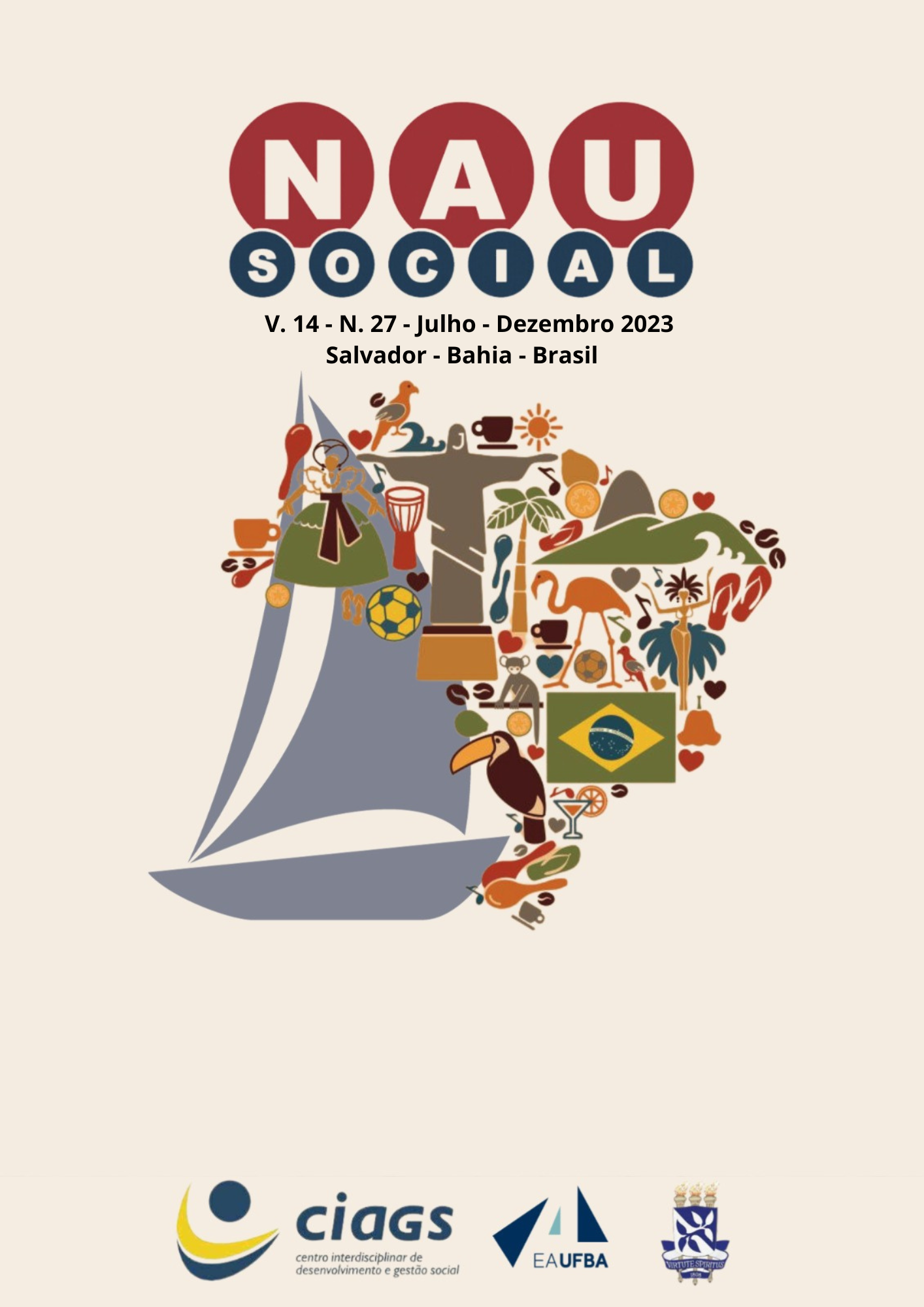THE IMMIGRATION AND THE TECHNOLOGY
challenges of the 21st century
DOI:
https://doi.org/10.9771/ns.v14i27.51887Abstract
Discusses the challenge of being an immigrant and refugee and how digital culture can contribute to the act of being in foreign lands become less complex for those who arrive there. In the 21st century, immigration and refugees should no longer be treated as they were in previous centuries, leaving people completely dependent on their own fate or totally dependent on the goodwill of others. With digital technologies, it is possible to make information reach the immigrant or refugee in real time and alert them about what they will find and how they should act so that this period of adaptation to the new environment has fewer mishaps. Thus, their vulnerability and exposure to psychological and physical violence becomes smaller and the adaptation and inclusion may be faster in the new community. The article employs a qualitative methodology with bibliographic and reflexive theoretical text. It concludes that using technologies, it is possible to promote the good without looking at whom or looking at everyone who is fragile, vulnerable, or insecure, because they do not know the environment, culture and language and thus preventing them from psychic and physical violence, protecting them from inhuman exposure and exploitation.
Downloads
References
BLACK, J. S.; MENDENHALL, M.; ODDOU, G. Toward a Comprehensive Model of International Adjustment: An Integration of Multiple Theoretical Perspectives. Academy of Management Review. vol. 16, n. 2, p. 291-317, 1991.
DECKER, Norberto. Nessa terra somos todos migrantes: Interfaces entre religião, acolhida humanitária e políticas de imigração no Brasil de ontem e de hoje. Porto Alegre: Programa de Pós-Graduação em Antropologia Social da UFRGS, 2017 (tese de doutorado). 405 f.
FERNANDÉZ, Dídimo Castillo. Coiotes. Enciclopédia LatinoAmericana. Disponível em: http://latinoamericana.wiki.br/verbetes/c/coiotes. Acesso em 7 set. 2022.
FLORIDI, Luciano. The Blackwell guide to the philosophy of computing and information. 350 Main Street, Malden, MA, USA; Oxford, UK; Carlton, Austrália: Blackwell philosophy guides: 2004.
______. (Org.) The Cambridge Handbook of Information and Computer Ethics. Cambridge University Press The Edinburgh Building, Cambridge, 2010.
FURNHAM, A.; BOCHNER, S. Culture shock: psychological reactions to unfamiliar environments. London and New York: Publishing of the Oxford University, 1986.
GODÍNEZ-MONTOYA, Lucila; FIGUEROA-HERNÁNDEZ, Esther; PÉREZ-SOTO, Francisco. Nueva reconfiguración de la inmigración internacional: el caso de España. In: GONZÁLEZ-BECERRIL, Juan Gabino; MONTOYA-ARCE, Bernardino Jaciel; BARRETO-VILLANUEVA, Adán (coords.). Hitos Demográficos del Siglo XXI: Migración Internacional. México: Universidad Autónoma del Estado de México, 2014. 2. ed. (p. 13-31).
LÈVY, P. Inteligencia colectiva: por una antropología del ciberespacio. Washington (USA): Editeur, 2004.
______. A revolução contemporânea em matéria de comunicação. Tecnologias do imaginário. Revista FAMECOS. Porto Alegre. n. 9. dez.1998. Semestral. p. 37-49.
MAINWARING, Ċetta. (2016) Migrant agency: negotiating borders and migration controls. Migration Studies, 206. 4(3), p. 289-308.
MIURA, I. K.; GONÇALVES, G. A. O Papel da Organização no Ajustamento do Expatriado. In: DANTAS, S. D. (org.). Diálogos interculturais: reflexões interdisciplinares e intervenções psicossociais. São Paulo, Instituto de Estudos Avançados da Universidade de São Paulo, 2012. (Cap. p. 247-272)
OLIVEIRA, Adriana Capuano de. Alteridade e Identidade: “Quem Somos”, “Quem São” nas Vivências de Processos Migratórios. In: DANTAS, Sylvia Duarte (org.). Diálogos interculturais: reflexões interdisciplinares e intervenções psicossociais. São Paulo: Instituto de Estudos Avançados da USP, 2012. p. 85-107.
TERRAZAS, Caroline; VITALLE, Maria Sylvia de Souza; PIRES, Bruno Rafael de Matos. Jovens imigrantes e o estigma social. Revista Educação. v.17, n.1, 2022, p. 136-149.
Published
How to Cite
Issue
Section
License
Copyright (c) 2024 NAU Social

This work is licensed under a Creative Commons Attribution-NonCommercial 4.0 International License.





